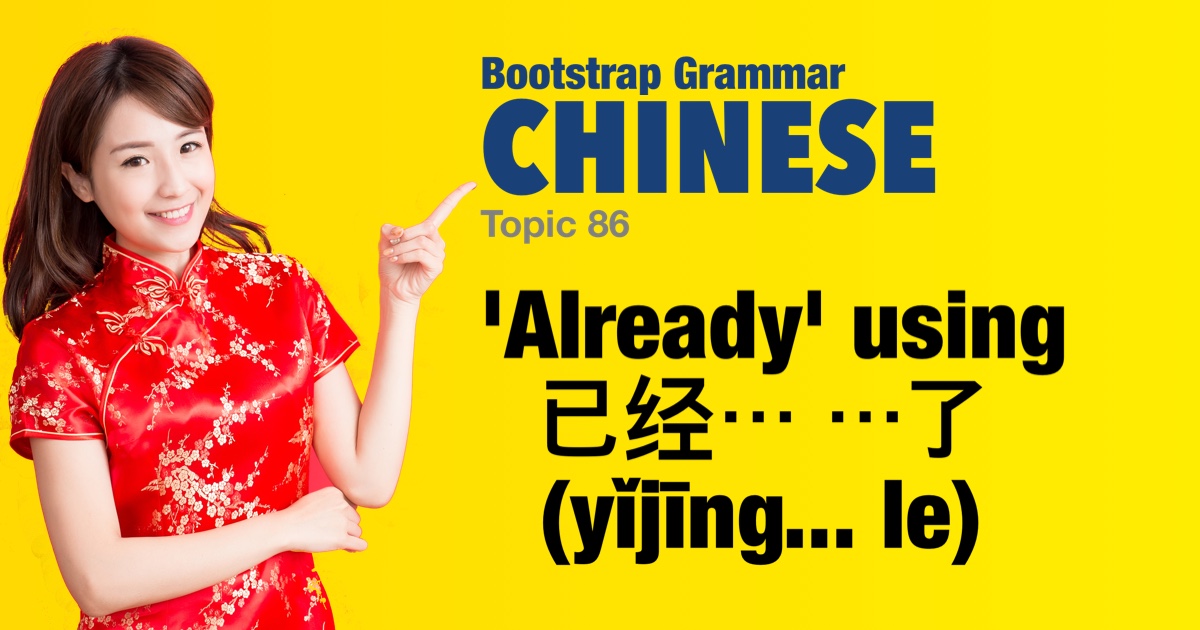Chinese grammar - 'Already' using 已经⋯ ⋯了 (yǐjīng... le) |
|||
|
|||
The structure 已经⋯ ⋯了 (yǐjīng... le) is used in Chinese to indicate that an action or state has 'already' been completed or achieved. This structure can be used with both verbs and adjectives. |
| Examples: | |
|
我已经吃完了。
wǒ yǐjīng chī wán le. I have already finished eating.
|
|
|
她已经有手机了。
tā yǐjīng yǒu shǒujī le. She already has a phone. |
|
|
他已经学会了开车吗?
tā yǐjīng xuéhuì le kāichē ma? Has he already learned to drive? |
|
|
天气已经冷了。
tiānqì yǐjīng lěng le. The weather is already cold. |
|
|
我们的孩子已经长大了。
wǒmen de háizi yǐjīng zhǎngdà le. Our children have already grown up. |
|
|
妈妈今天早上已经去市场了。
māma jīntiān zǎoshang yǐjīng qù shìchǎng le. Mom has already gone to the market this morning. |
|
|
学生已经回答了问题。
xuéshēng yǐjīng huídá le wèntí. The students have already answered the question. |
|
|
你的叔叔已经去日本了吗?
nǐ de shūshu yǐjīng qù rìběn le ma? Has your uncle already gone to Japan?
|
|
|
你为什么已经吃了冰淇淋?
nǐ wèishénme yǐjīng chī le bīngqílín? Why have you already eaten the ice cream?
|
|
|
她已经写完了信。
tā yǐjīng xiě wán le xìn. She has already written the letter. |
|
 |
|



